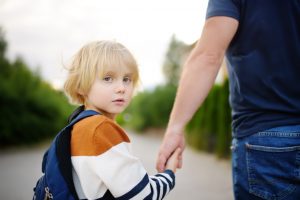Poor School Performance and How Parents Can Help
 Regardless of your child’s age, the occasional school struggle is normal. But when that struggle becomes a pattern, it often raises concern―from parents and/or teachers. Read more ›
Regardless of your child’s age, the occasional school struggle is normal. But when that struggle becomes a pattern, it often raises concern―from parents and/or teachers. Read more ›
 Regardless of your child’s age, the occasional school struggle is normal. But when that struggle becomes a pattern, it often raises concern―from parents and/or teachers. Read more ›
Regardless of your child’s age, the occasional school struggle is normal. But when that struggle becomes a pattern, it often raises concern―from parents and/or teachers. Read more ›
 Children and adolescents who do not get enough sleep have a higher risk for many health and behavior problems. Learn how much sleep students need and how many are not getting it. Read more ›
Children and adolescents who do not get enough sleep have a higher risk for many health and behavior problems. Learn how much sleep students need and how many are not getting it. Read more ›
 Elementary school-age kids who sleep less than the recommended number of hours per night exhibit differences in brain regions associated with memory, intelligence and well-being, according to a recent study. Read more ›
Elementary school-age kids who sleep less than the recommended number of hours per night exhibit differences in brain regions associated with memory, intelligence and well-being, according to a recent study. Read more ›
 Unfortunately, too little sleep isn’t just a problem for adults. It’s also an increasing problem for our kids. While every child is different, the American Academy of Pediatrics (AAP) recommends 9 to 12 hours of sleep per night for younger kids and 8 to 10 hours for teens. Read more ›
Unfortunately, too little sleep isn’t just a problem for adults. It’s also an increasing problem for our kids. While every child is different, the American Academy of Pediatrics (AAP) recommends 9 to 12 hours of sleep per night for younger kids and 8 to 10 hours for teens. Read more ›
 Still stuck in the dinosaur age when thinking and talking about gender, sexuality and identity? Much has changed in our understanding of these concepts. Learn how you can be an ally and advocate for all youth as they navigate their path towards self-identity and independence. Read more ›
Still stuck in the dinosaur age when thinking and talking about gender, sexuality and identity? Much has changed in our understanding of these concepts. Learn how you can be an ally and advocate for all youth as they navigate their path towards self-identity and independence. Read more ›
 Scientists have long recognized that getting enough sleep during childhood can benefit developing brains. However, the underlying brain mechanisms are not well understood. And although experts say that children ages 6 to 12 should get at least nine hours of sleep each day, it’s been unclear how less sleep might affect a child’s brain. Read more ›
Scientists have long recognized that getting enough sleep during childhood can benefit developing brains. However, the underlying brain mechanisms are not well understood. And although experts say that children ages 6 to 12 should get at least nine hours of sleep each day, it’s been unclear how less sleep might affect a child’s brain. Read more ›
 The SEL @ Home video collection from PBS Learning Media was created to help parents and caregivers by increasing your understanding of Social and Emotional Learning (SEL) and offering real-world examples of how you can help your children develop SEL skills while at home. Read more ›
The SEL @ Home video collection from PBS Learning Media was created to help parents and caregivers by increasing your understanding of Social and Emotional Learning (SEL) and offering real-world examples of how you can help your children develop SEL skills while at home. Read more ›
 Talking with your baby or toddler can help their language and communication development. The more you talk with your baby or toddler, the better.
Talking with your baby or toddler can help their language and communication development. The more you talk with your baby or toddler, the better.
This is because parents who talk a lot to their young children use many different sounds and words. When children hear a lot of words and many different words, it improves their understanding of language. It also increases the number and variety of words that they understand and use. Read more ›
 A good kindergarten experience sets kids up for success in school and into adulthood. Students in smaller kindergarten classes are more likely to go to college than students from larger classes. And by age 27, students who had more experienced kindergarten teachers were earning more money than their peers who had less-experienced teachers in kindergarten. Read more ›
A good kindergarten experience sets kids up for success in school and into adulthood. Students in smaller kindergarten classes are more likely to go to college than students from larger classes. And by age 27, students who had more experienced kindergarten teachers were earning more money than their peers who had less-experienced teachers in kindergarten. Read more ›
 Jonas Miller, a researcher focused on brain functioning in young children, talks about the long-term effects of early childhood experiences. Read more ›
Jonas Miller, a researcher focused on brain functioning in young children, talks about the long-term effects of early childhood experiences. Read more ›